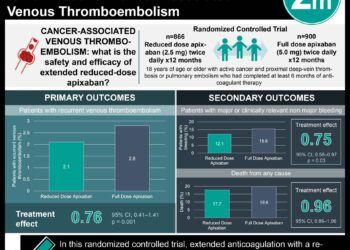Wellness Check: Spirituality
The experience of spirituality may positively impact the lives of terminal cancer patients
1. In this study, individuals were found to experience peace at the end of life through acceptance, hope and living in the present.
2. Furthermore, making a sense of dying, living with dying, feeling connected and being reflective were themes relating to an individual’s experience of spirituality.
Evidence Rating Level: 2 (Good)
It has been well documented that a diagnosis of terminal cancer has the potential to trigger psychological, social, and spiritual concerns as patients they move closer towards death. Although previous literature has focused on spirituality at the end of life and of the needs of family caregivers, none have focused specifically on terminal cancer patients. As a result, the objective of the present systematic review and qualitative meta-synthesis was to examine spirituality in terminal cancer patients.
Of 6151 identified studies, 37 were included in the meta-synthesis from March 2009-March 2022. Studies were included if they included the perspectives of terminal cancer patients aged 18 years or older on their spirituality or related concepts. Quality appraisal was performed using the Critical Appraisal Skills Programme (CASP). Data was thematically synthesized using a three-stage framework.
Results demonstrated that individuals may experience peace at the end of life through acceptance, hope, and living in the present. Furthermore, making a sense of dying, living with dying, feeling connected, and being reflective were themes relating to an individual’s experience of spirituality. Despite these findings, the study was limited by the lack of clarity surrounding the difference between the terms “advanced” and “terminal” in the literature which may have restricted the inclusion of all the relevant literature. Nonetheless, these results demonstrated that spirituality may be a transformative and positive experience for terminal cancer patients.
1. In this systematic review, five studies showed a significant correlation between religiosity/spirituality (R/S) and medication adherence amongst patients with cardiovascular disease, whereas four reported a negative or null association.
2. Furthermore, there was a paucity of evidence exploring this relationship amongst patients specifically with coronary artery disease, arrhythmia, angina, and myocardial infarction.
Evidence Rating Level: 2 (Good)
In the literature, religiosity has been shown to influence the health behaviors of individuals with cardiovascular diseases (CVDs). It is also known that approximately 50% of these patients are non-adherent to their medication. Currently, no systematic review has investigated the association between R/S and medication adherence among patients with CVDs. As a result, the objective of the present study was to describe the nature and extent of this relationship.
Of 407 identified records, 9 were included between 2006-2018. Studies were included if they measured R/S and medication adherence in patients with a range of CVDs of all ages and all settings. Non-research or non-original research articles were excluded. Quality was assessed using the Crowe Critical Appraisal Tool (CCAT). Data was analyzed using a qualitative narrative synthesis.
Results demonstrated that five studies showed a significant correlation between religiosity/spirituality (R/S) and medication adherence amongst patients with CVDs. On the contrary, four reported a negative or null association. Some studies have found no relationships between R/S and medication adherence in hypertension and heart failure patients. Furthermore, there was a paucity of evidence in patients with coronary artery diseases, arrhythmia, angina and myocardial infarction. However, the study was limited by the small number of included studies with findings applying only to either hypertension or heart failure. Nonetheless, the present study was the first to examine the relationship between R/S and medication adherence among patients with CVDs and may provide more opportunities for future research.
Religiosity and spirituality may positively impact the well-being of kidney transplant recipients
1. In this scoping review, religiosity and spirituality (R/S) were positively associated with the well-being of kidney transplant recipients, primarily through increased adherence to immunosuppressant medication and coping.
2. Locus of control had a significant impact on adherence to immunosuppressive medications post-kidney transplantation.
Evidence Rating Level: 2 (Good)
Although the impact of R/S in cancer, palliative care, and chronic disease patients has been well documented, it’s impact on health outcomes for people living with kidney failure and following kidney transplantation remains an emerging area of research. As a result, the objective of the present scoping review was to explore the current knowledge and identify evidence gaps surrounding R/S and patients who have received a kidney transplant.
Of 7 identified records, 4 were included in the qualitative synthesis from January 2000-May 2020. All studies that included spirituality, religion, faith, belief systems and kidney transplantation were included in the study. Studies were excluded if definitions of spirituality and religiosity were vague. Authors looked for common aspects across the included studies and two common themes were identified across the four included studies: clinical outcomes and well-being outcomes. Subcategories were then identified within each of the key themes identified: medication adherence, renal function, adverse transplant outcomes, locus of control and coping.
Results demonstrated that religiosity and spirituality (R/S) were positively associated with the well-being of kidney transplant recipients primarily through increased adherence to immunosuppressant medication and coping. Furthermore, locus of control had a significant impact on adherence to immunosuppressive medications post-kidney transplantation. Despite these findings, the study was limited by the absence of a quality appraisal of the studies. Nonetheless, the results from the scoping review may be used to inform future research and shape the development of post-transplantation care of kidney recipients.
Spirituality may aid patients with neurological diseases cope with their illness
1. In patients with neurological disorders, spirituality appeared to be associated with a higher quality of life and emotional wellbeing.
2. Furthermore, there was a lower incidence of certain neurological disorders (e.g. Alzheimer’s disease and dementia) amongst religious communities incorporating lifestyle recommendations, compared to the general population.
Evidence Rating Level: 2 (Good)
Neurological disorders are highly prevalent and can cause high rates of disability and dependency around the world. In the literature, there have been reports of several other chronic diseases such as cardiovascular disease, kidney disease and cancer which have benefitted from spiritual practices. As the literature is limited with respect to neurological disorders, the objective of the present systematic mapping review was to map the knowledge of spirituality experienced by these patients and determine its influence on outcomes as well as their ability to cope.
Of 159 identified records, 13 were included in the literature review from April 1st 2022 to April 21st 2022. Studies were included if they studied the effect of spiritual/religious interventions on coping in patients with neurological/neurodegenerative disorders. Following the search, authors prepared an analysis and synthesis table.
Results of the synthesis demonstrated that in patients with neurological disorders, spirituality appeared to be associated with a higher quality of life and emotional wellbeing. Furthermore, this scoping review identified studies suggesting a lower incidence of certain neurological disorders (e.g. Alzheimer’s disease and dementia) amongst members in religious communities who incorporate lifestyle recommendations, compared to the general population. Despite these findings, the study was limited by searching only three databases and also omitting a quality appraisal of the included studies, which may limit applicability to clinical practice. Nonetheless, these results suggest that spirituality may be an important adjunct to treatment of patients with neurological/neurodegenerative disorders.
Image: PD
©2022 2 Minute Medicine, Inc. All rights reserved. No works may be reproduced without expressed written consent from 2 Minute Medicine, Inc. Inquire about licensing here. No article should be construed as medical advice and is not intended as such by the authors or by 2 Minute Medicine, Inc.







